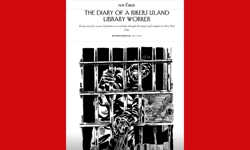In a leader and briefing published in this week’s issue, The Economist argues that the greatest loser in a world of limitless choice is not the hit, as predicted by Chris Anderson in “The Long Tail”, but the near-miss. Technology may have made it easier to access niche media, but in film, music, television and books, blockbusters are tightening their grip on audiences and advertisers, to the detriment of the mid-market.
The phenomenon of overwhelming choice in entertainment, The Economist says, favours the hit, leading consumers to “grab the first thing that everyone is talking about or that you heard on the radio that morning.” Music streaming service Spotify, for example, offers listeners three million tracks, but the most popular 5% still account for 80% of all streams.
As to whether the increasing polarisation of entertainment into blockbuster and niches is a good or bad thing, The Economist concludes with: “Thinking people naturally deplore the rise of lowest-common-denominator blockbusters and wish that more money were available to produce the kind of music, films and television they like. The problem is that everybody has different ideas about what they want to see... There are only a few things that can be guaranteed to delight a large number of people. They are known as blockbusters.”
The full article is available at www.economist.com and in the current issue on the newsstand.










